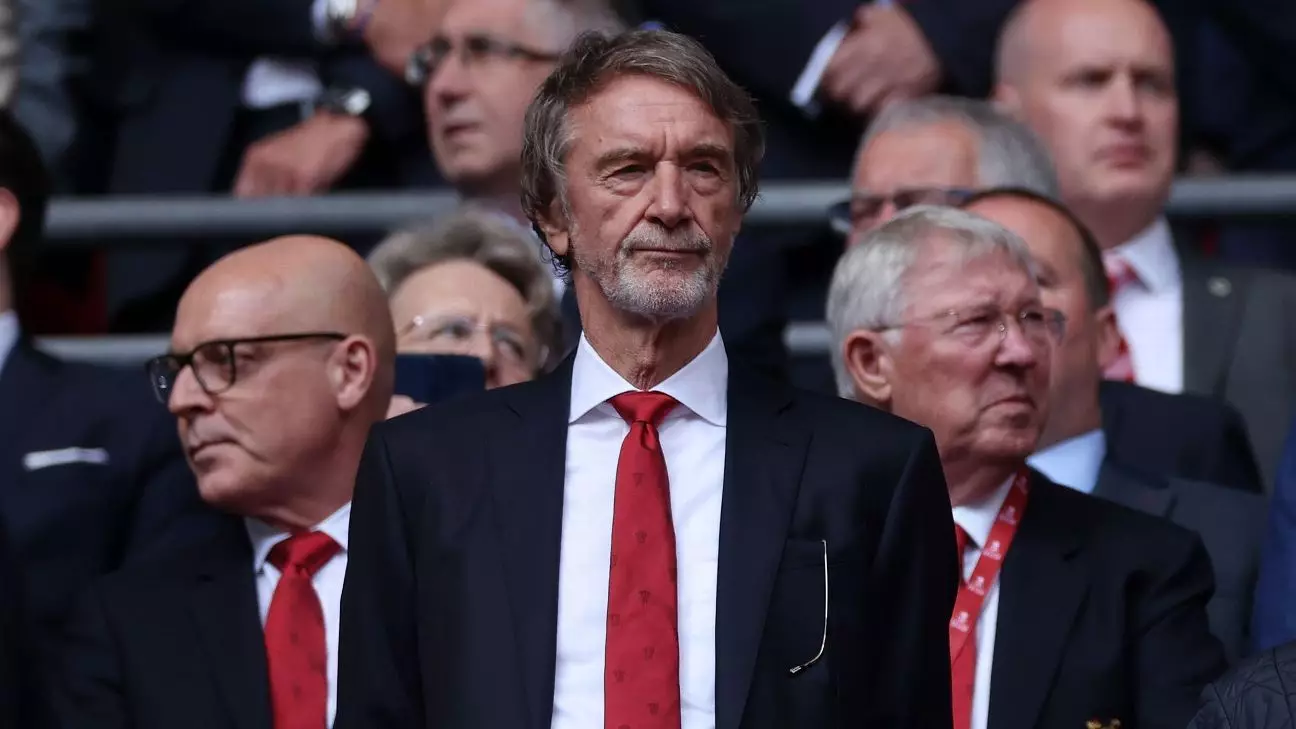In recent developments, Sir Jim Ratcliffe, a significant stakeholder in Manchester United, has voiced critical concerns regarding the current state of the club. With a 27.7% stake acquired earlier this year, Ratcliffe has expressed a desire to shift the paradigm of dominance in English football, particularly aimed at rival giants like Manchester City and Liverpool. However, his arrival coincided with a tumultuous period for the club, marked by managerial instability and a stark decline in performance. The dismissal of Erik ten Hag, amid fears that United would surpass last season’s record lows, epitomizes this struggle. Despite the appointment of new manager Ruben Amorim, the club’s situation remains troubling, languishing in the lower half of the Premier League table.
Ratcliffe’s assessment of United’s status as “mediocre” resonates deeply with fans and analysts alike. The club, once a shining beacon of success, now finds itself grappling with an identity crisis. In his dialogue with the fanbase via the fanzine United We Stand, he underscored the necessity for “difficult and unpopular decisions.” This statement is reflective of a broader philosophy that effective leadership demands sometimes painful choices to initiate change. The reality of modern football is that complacency breeds stagnation, and United must confront harsh truths if it hopes to reclaim its historically lofty perch.
As part of its strategy to reforge competitiveness, Manchester United made drastic moves this summer, including substantial workforce reductions, with nearly a quarter of its staff laid off. This decision, while financially pragmatic, raises questions about the balance between operating costs and the ethos of a club renowned for its dedication to excellence. The funds saved are purportedly earmarked for bolstering the squad and improving overall performances, yet the effectiveness of this approach remains to be seen. In addition, the ending of Sir Alex Ferguson’s ambassadorial role—an end to an era—marks another significant shift in the club’s operational philosophy, indicating a desire for renewal that may, paradoxically, alienate some longtime supporters.
A Vision for the Future
Looking ahead, the crux of Manchester United’s revitalization rests in establishing a coherent strategy that can effectively bridge the gap between current performance and historic greatness. Ratcliffe’s strategic insights will be pivotal; however, there needs to be consensus among stakeholders that transformation requires commitment beyond mere rhetoric. Emotional investments from the fanbase, along with a clear mission for the club moving forward, could serve as the foundation for a sustained resurgence.
While Ratcliffe’s intentions are commendable, the real test will be whether the necessary changes can be instituted in a manner that not only addresses immediate issues but also fosters long-term stability and success. The road to reclaiming Manchester United’s status as a preeminent force in football is fraught with challenges. However, with resolute leadership and strategic clarity, the club has an opportunity to rewrite its narrative and ignite the transformative journey back to the pinnacle of the sport.

